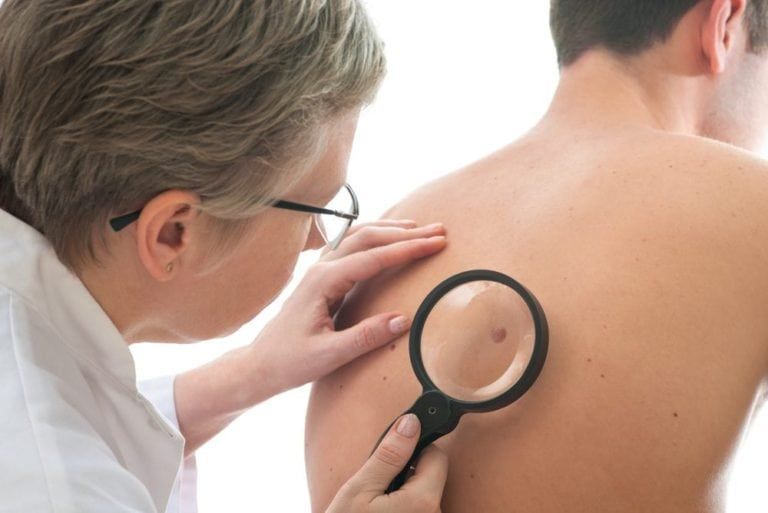Skin cancer is one of the most common types of cancer. There are 3 main types of skin cancer: basal cell carcinoma, squamous cell carcinoma and melanoma.
Basal cell carcinoma is the most common type and occurs in the basal layer of the top layer of the skin, hence its name. Basal cell cancers are caused by sun exposure. Basal Cell cancers are almost always curable. It is best however to come to the office when the basal cell is small and early so that it can be treated in a simple manner. Some basal cell skin cancers are superficial and can be treated with topical prescriptions such as Imiquimod or effudex. Some Basal cell cancers can be treated with treated with surgical procedures (excision, electrodessication and curettage, Mohs Micrographic Surgery). Mohs surgery is not required on all basal cell skin cancers. If the basal cell is deep or in a difficult area such as by the eye or nose, Mohs surgery may be needed. We will refer you to a Board certified, fellowship trained Mohs surgeon for the best possible results.
Squamous cell carcinoma is the second most common cause of skin cancer and occurs in skin cells called keratinocytes. Again, these cancers are caused by usually a lifetime of sun exposure. This type of skin cancer can spread about 5% of the time to internal organs or lymph nodes so is important to identify and treat as soon as possible. Squamous Cell cancers are curable, and are treated with surgical procedures (excision, electrodessication and curettage, Mohs Micrographic Surgery), Photodynamic therapy or Imiquimod cream, depending on the type of cancer, its location and its size can also be used.
Melanoma is the most serious, as it has a much higher chance of spreading. Mole cancer starts from the pigmentation cells in the skin. It can be hereditary or from sun or both. It can be cured if caught early. A precursor to melanoma can be the precancerous or dysplastic nevus. . Please have your moles checked so that We can remove these dysplastic nevi and reduce the chance that one of them will go on to develop into a melanoma.
Dr Woods is known for being a leader in skin cancer detection and prevention. She specializes in thorough body checks, taking extra time in looking for any suspicious moles or lesions and which can be difficult to locate in areas such as the scalp and hard to reach body areas in self-examinations.






